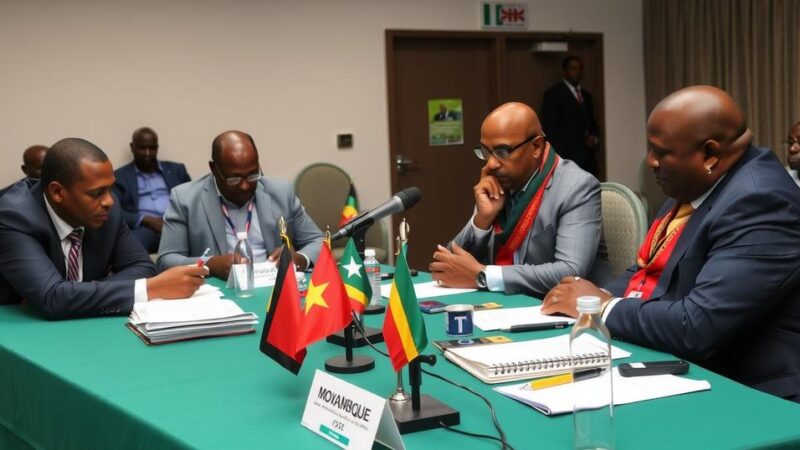Namibia’s 2024 elections are set to be the most competitive yet, with rising youth dissatisfaction against the long-standing SWAPO party. Key candidates include Vice President Nandi-Ndaitwah, who could become the first female president, and former SWAPO member Panduleni Itula. Issues at stake include economic inequality, unemployment, and corruption. There is a cautious expectation of peaceful voting, but concerns remain about election disputes and delayed results.
Namibia is set to hold its presidential and parliamentary elections on November 27, 2024, amidst a backdrop of electoral upheavals in Southern Africa. This election is expected to be highly competitive, with rising dissatisfaction particularly amongst the youth who are increasingly disillusioned with the ruling SWAPO party, which has been in power since Namibia’s independence in 1990. Analysts suggest that while the potential exists for a shift in power, SWAPO continues to benefit from a fragmented opposition, which lacks coordination compared to opposition movements in neighboring countries.
The election process involves 1.45 million registered voters choosing from 21 parties contesting for 96 parliamentary seats and 15 presidential candidates. A candidate must secure over 50 percent of the vote for a straightforward victory; otherwise, a runoff will occur between the top two candidates, a scenario yet to be seen in Namibia. Among the leading candidates is Vice President Netumbo Nandi-Ndaitwah, who would be the nation’s first female president if elected, followed by former SWAPO member Panduleni Itula, who now heads the Independent Patriots for Change (IPC), and Popular Democratic Movement leader McHenry Venaani.
Key issues facing the electorate include rampant economic inequality, high unemployment, systemic corruption, and significant housing shortages. Namibia’s wealth is largely concentrated, with over 64 percent of the population living on less than $5.50 per day. Itula appeals to youth by promising economic reform, while Nandi-Ndaitwah faces pressure to demonstrate tangible solutions to these pressing concerns. The election atmosphere is cautiously optimistic, with expectations of a peaceful voting process, although there are concerns regarding potential disputes over delayed result announcements due to changes in the voting system.
The upcoming Namibian elections occur within a fragile political landscape influenced by previous election outcomes in neighboring countries. Discontent with longstanding ruling parties has resulted in significant electoral changes in Botswana and South Africa. Amidst this turbulence, Namibia, a young democracy experiencing historical dissatisfaction with the ruling SWAPO party, is entering a critical election phase. With rising population needs against a backdrop of economic inequality and systemic issues such as corruption and unemployment, voter sentiments are increasingly pivotal in determining the future political landscape.
The 2024 Namibian elections present a significant moment for potential political change, reflecting broader regional trends where liberation parties are losing grip on power. The intensified competition, particularly from youth-oriented candidates, underscores a profound shift in public sentiment towards socioeconomic issues that have remained unaddressed. As voters prepare to make crucial decisions, the outcome will heavily depend on the ability of opposition candidates to galvanize support amidst SWAPO’s historical dominance.
Original Source: www.aljazeera.com







